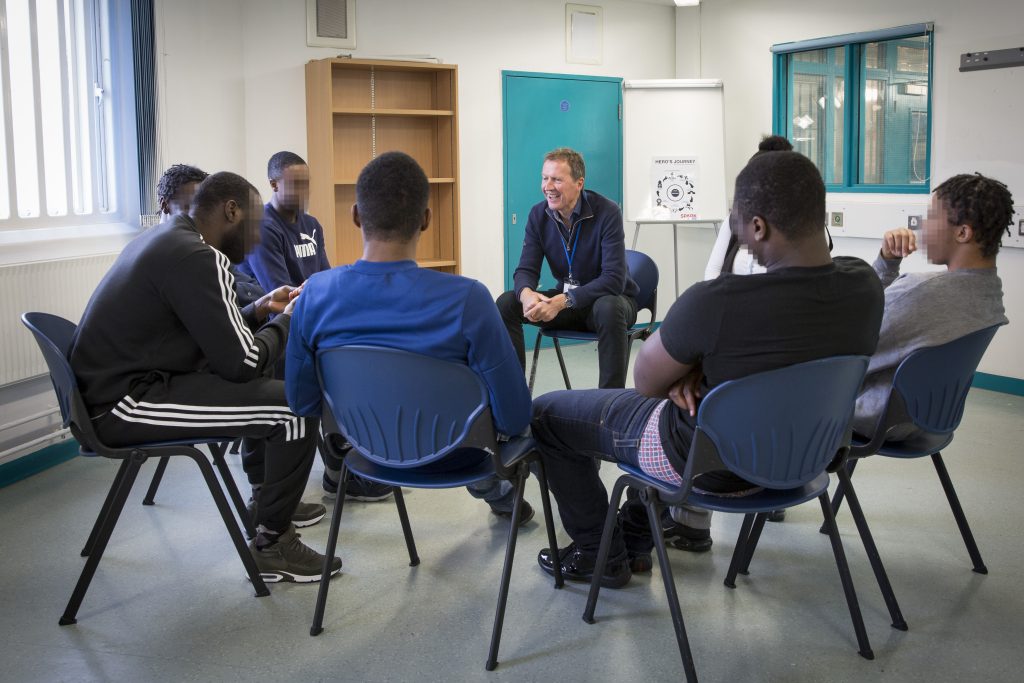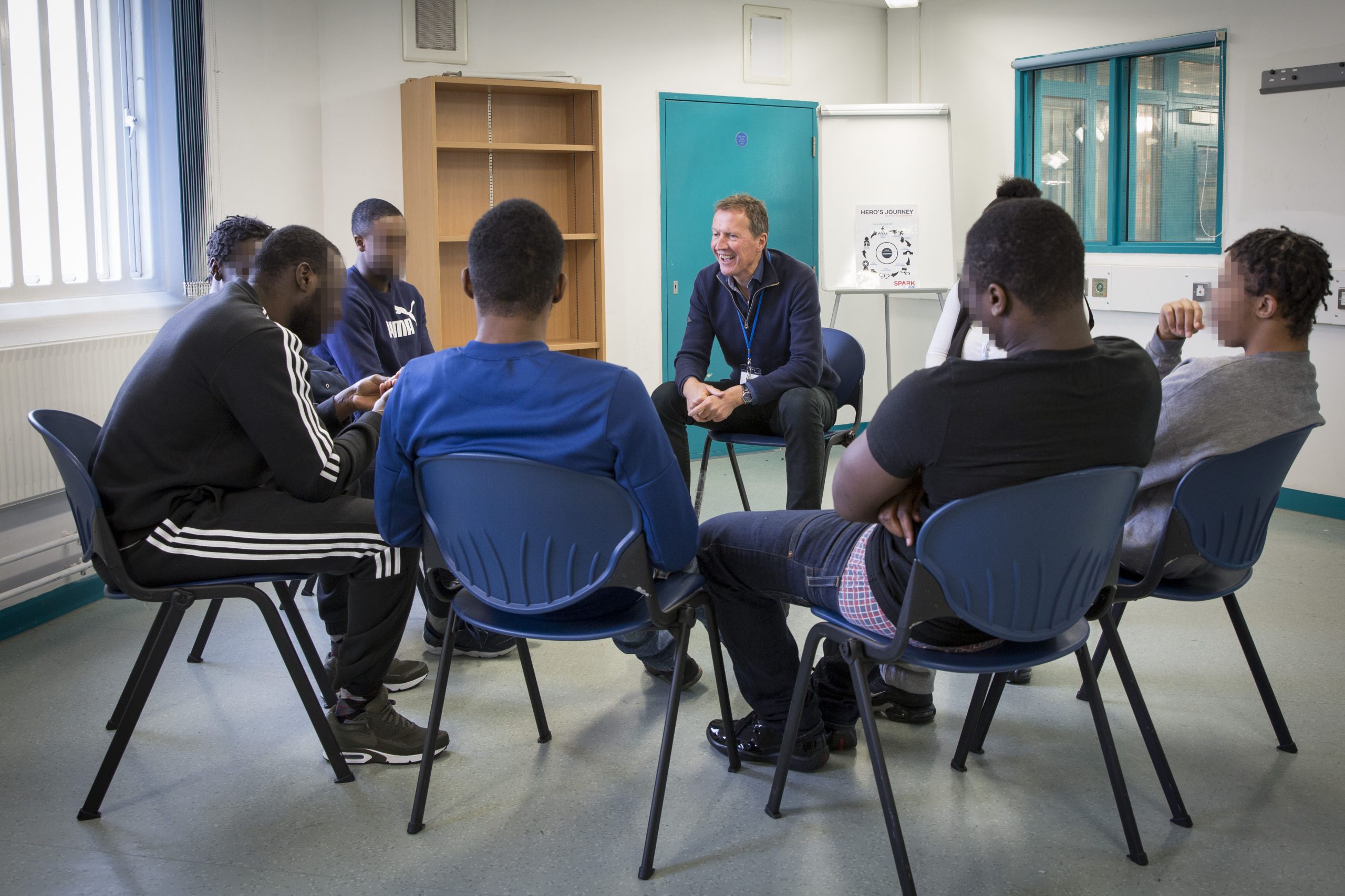In the heart of London, the battle against crime isn’t just fought in courtrooms or by police on the streets—it’s also waged in the offices and community centers of organizations like the London Community Rehabilitation Company (CRC). The CRC plays a crucial role in helping to break the cycle of reoffending by addressing the root causes of criminal behavior. Through targeted rehabilitation services, they work with individuals who have fallen foul of the law, aiming not just to punish, but to reform and reintegrate them into society. This holistic approach is key to creating lasting change, both for the individuals involved and for the broader community.
Understanding the Root Causes of Crime
Crime doesn’t happen in a vacuum. While the media often highlights shocking offenses, what’s less discussed is the complex web of factors that lead individuals down a criminal path. Many offenders have histories marked by trauma, poverty, mental illness, addiction, and lack of education. These underlying issues often serve as catalysts for criminal behavior, making it difficult for individuals to break free from the cycle of reoffending without appropriate support.
One of the most significant factors is poverty. Many offenders come from disadvantaged backgrounds where opportunities for legitimate employment and education are scarce. This lack of resources and opportunities can push individuals towards crime as a means of survival. Moreover, substance abuse is another major contributor to criminal behavior. For many offenders, drug or alcohol addiction is both a cause and consequence of their criminal activities, creating a vicious cycle that is hard to escape.
Mental health issues also play a critical role. A significant proportion of the prison population suffers from mental health disorders, ranging from depression and anxiety to more severe conditions like schizophrenia. Without proper diagnosis and treatment, these individuals often end up in the criminal justice system, where their needs are not adequately addressed. This neglect can exacerbate their conditions, leading to further criminal behavior.
Finally, lack of education and employment opportunities further entrench individuals in the cycle of crime. Without the skills or qualifications needed to secure stable employment, many ex-offenders find themselves unable to build a lawful and productive life upon release. This frustration and sense of hopelessness can drive them back into criminal activities.
How London CRC Addresses These Root Causes
The London CRC recognizes that addressing these root causes is essential to breaking the cycle of reoffending. Their approach to rehabilitation is multifaceted, aiming not just to correct behavior but to provide the support and tools necessary for individuals to rebuild their lives.
1. Substance Abuse Programs
One of the key services offered by the CRC is support for those struggling with substance abuse. Understanding that addiction is often at the heart of criminal behavior, the CRC provides access to specialized programs designed to help individuals overcome their dependencies. These programs are not just about detoxification; they also involve counseling, peer support, and strategies for long-term recovery. By addressing addiction, the CRC helps offenders reduce their chances of relapse and reoffending.
2. Mental Health Support
Recognizing the prevalence of mental health issues among offenders, the CRC offers tailored mental health services. These services range from counseling and therapy to medication management and crisis intervention. The goal is to ensure that individuals receive the mental health care they need, both during their time in the rehabilitation program and beyond. By stabilizing mental health conditions, the CRC helps offenders gain the clarity and strength needed to make positive changes in their lives.
3. Educational and Vocational Training
Education and employment are critical factors in reducing reoffending rates. The CRC provides access to educational programs that allow offenders to gain basic qualifications, such as GCSEs or vocational certificates. In addition to education, the CRC also offers vocational training in various fields, from construction to catering, equipping individuals with the skills they need to find employment upon release. By providing these opportunities, the CRC helps to remove one of the key barriers to successful reintegration into society.
4. Housing and Social Support
A stable home environment is fundamental to successful rehabilitation. The CRC works closely with housing providers to help offenders secure safe and stable accommodation upon release. In addition to housing, the CRC provides social support services, including assistance with benefits, budgeting, and reconnecting with family and community networks. These services are crucial in helping individuals build a stable foundation for their new lives.
Success Stories: Proof That Rehabilitation Works
The effectiveness of the CRC’s approach is best illustrated through the success stories of those who have turned their lives around. Take, for example, the case of John (name changed for privacy), a former offender who struggled with alcohol addiction for years. After being referred to the CRC, John participated in their substance abuse program, received counseling, and completed vocational training in plumbing. Today, John is not only sober but also employed full-time, contributing positively to society. His story is just one of many that highlight how addressing the root causes of crime can lead to lasting change.
Conclusion: A Holistic Approach to Crime Reduction
The work of the London CRC demonstrates that tackling the root causes of crime is essential to reducing reoffending rates. By addressing issues such as substance abuse, mental health, education, and housing, the CRC helps individuals break free from the cycle of crime and build new, productive lives. This holistic approach is not just beneficial for the offenders themselves, but for society as a whole. By supporting rehabilitation over punishment alone, we can create safer communities and offer individuals the chance for true redemption and reintegration.

